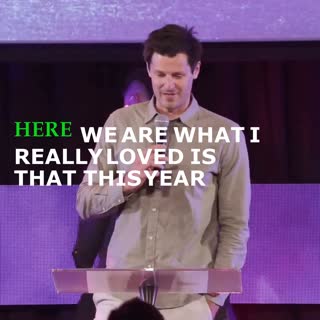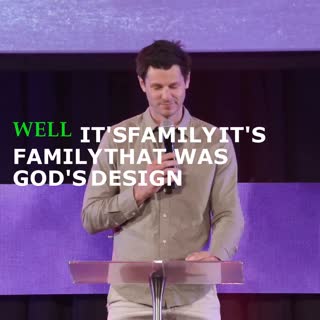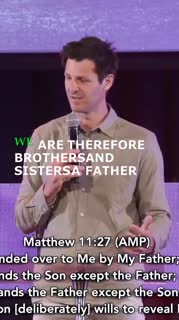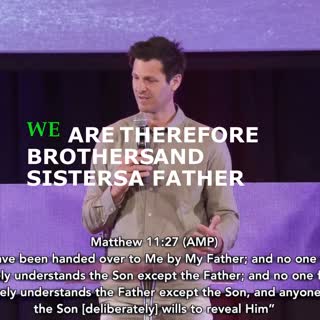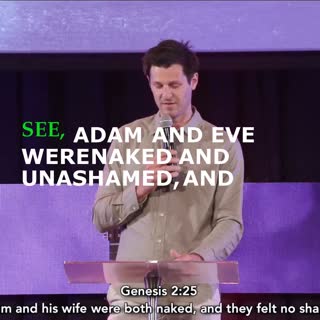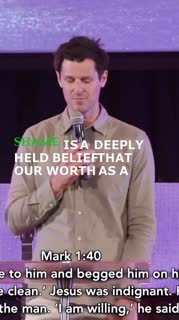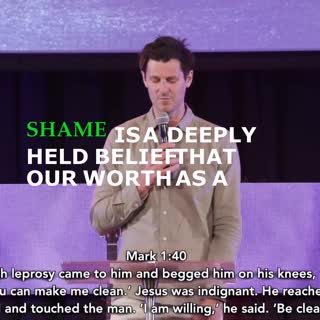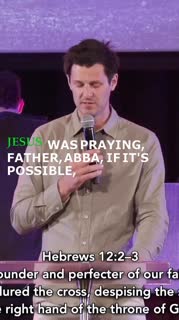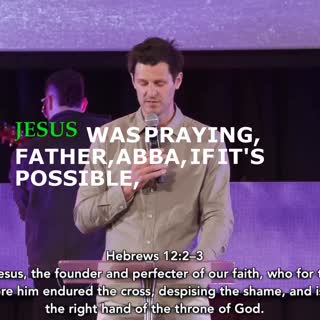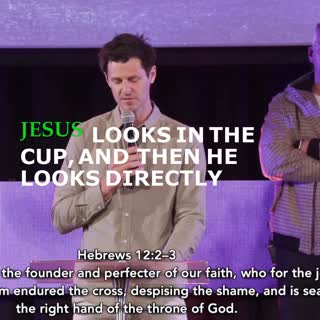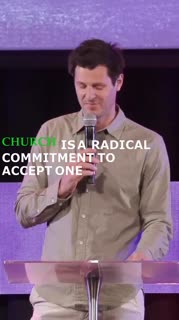Embracing Our Identity: Church as Family
Devotional
Sermon Summary
Bible Study Guide
Sermon Clips
"Here we are what I really loved is that this year we actually shifted the name from Harmony Camp to Family Camp right and that was deliberate I think but it was also prophetic and honestly it was felt as you could hear couple of real proud moments is Jim and Lincoln getting baptized we're going to have another baptism service on the 8th of December if you're thinking about it come and talk to me because it's so fun to celebrate those moments with one another." [01:09:49] (47 seconds)
"Well it's family it's family that was God's design in the records we have of Jesus he speaks 213 times father the name father father that's double what he says about the kingdom John 14 8 says this is Philip speaking he says Lord show us the father and that will be enough for us Jesus answered don't you know me?" [01:13:20] (31 seconds)
"We are therefore brothers and sisters. A father needs a habitat of the environment of family to function rightfully as a father. Not isolation. Not individualism. Not cold and callous independence." [01:15:30] (19 seconds)
"See, Adam and Eve were naked and unashamed, and after they sinned, they were naked and felt shame. I want to contrast guilt and shame, right? We see in the passage, shame starts as a feeling, not as a fact. Genesis 2 .25 says, they felt no shame." [01:19:24] (24 seconds)
"Shame is a deeply held belief that our worth as a person is scum. It causes us to feel like we've been rejected and we will be rejected by others. And so we disconnect. It's a crushing burden." [01:37:16] (19 seconds)
"Jesus was praying, Father, Abba, if it's possible, take this cup from me. I want you to picture that cup, that cup full of the shame of the world. And right now, I want you to, in an act of faith, pour your own shame, your own darkness into that cup." [01:43:24] (28 seconds)
"Jesus looks in the cup, and then He looks directly at you, and He makes His decision. What does He choose? He chooses you. He chooses you. Jesus says, you are worth this pain. You are worth my life." [01:46:51] (25 seconds)
"Church is a radical commitment to accept one another. Community is where the healing of shame is found. And if you don't know God for yourself, if you don't know this Father this morning, and you'd like to know Him, if you'd like to be part of the family, why don't you slip up your hand right now, just while everybody's taking communion. I just want to acknowledge it, because I'd love to pray with you." [01:50:06] (32 seconds)
Ask a question about this sermon
"Well it's family it's family that was God's design in the records we have of Jesus he speaks 213 times father the name father father that's double what he says about the kingdom John 14 8 says this is Philip speaking he says Lord show us the father and that will be enough for us Jesus answered don't you know me?" [01:13:20] (31 seconds)
"We are therefore brothers and sisters. A father needs a habitat of the environment of family to function rightfully as a father. Not isolation. Not individualism. Not cold and callous independence." [01:15:30] (19 seconds)
"See, Adam and Eve were naked and unashamed, and after they sinned, they were naked and felt shame. I want to contrast guilt and shame, right? We see in the passage, shame starts as a feeling, not as a fact. Genesis 2 .25 says, they felt no shame." [01:19:24] (24 seconds)
"Shame is a deeply held belief that our worth as a person is scum. It causes us to feel like we've been rejected and we will be rejected by others. And so we disconnect. It's a crushing burden." [01:37:16] (19 seconds)
"Jesus was praying, Father, Abba, if it's possible, take this cup from me. I want you to picture that cup, that cup full of the shame of the world. And right now, I want you to, in an act of faith, pour your own shame, your own darkness into that cup." [01:43:24] (28 seconds)
"Jesus looks in the cup, and then He looks directly at you, and He makes His decision. What does He choose? He chooses you. He chooses you. Jesus says, you are worth this pain. You are worth my life." [01:46:51] (25 seconds)
"Church is a radical commitment to accept one another. Community is where the healing of shame is found. And if you don't know God for yourself, if you don't know this Father this morning, and you'd like to know Him, if you'd like to be part of the family, why don't you slip up your hand right now, just while everybody's taking communion. I just want to acknowledge it, because I'd love to pray with you." [01:50:06] (32 seconds)

